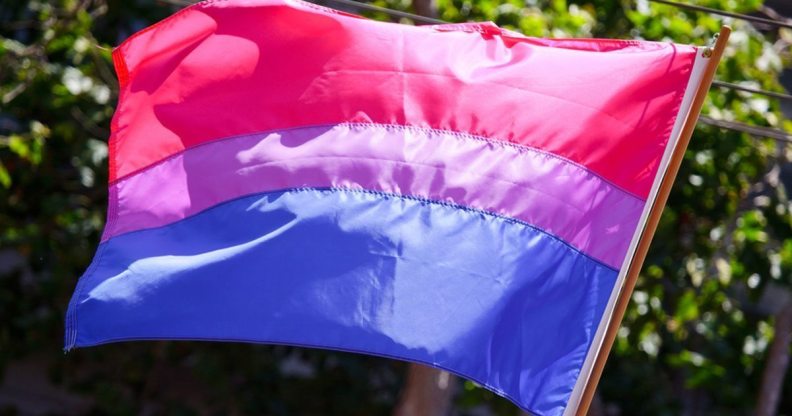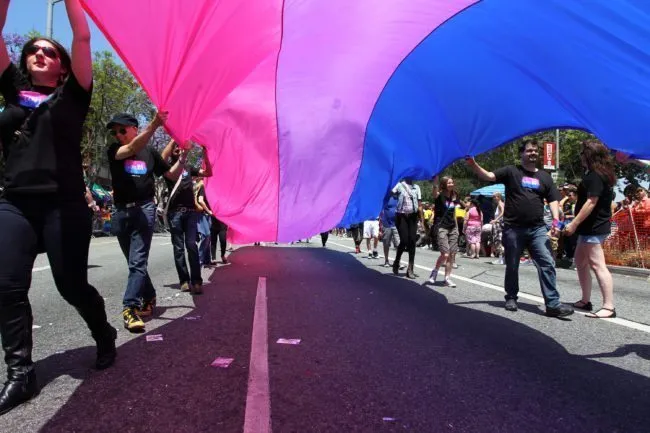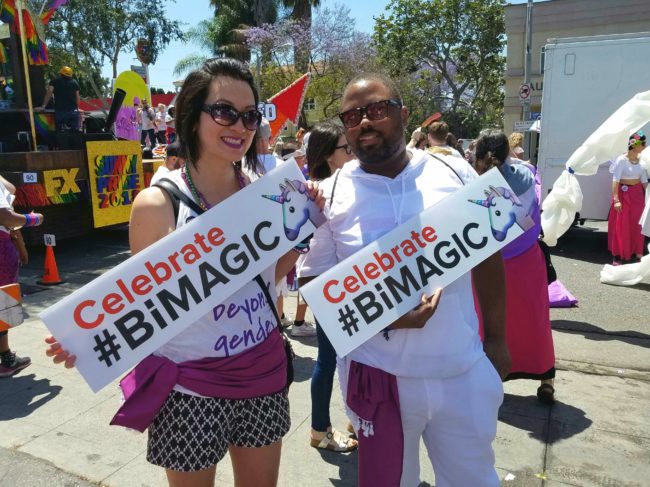What is Bi Visibility Day and why is it important?

Twenty-nine percent of bisexual employees said they had hidden their identity (Creative Commons)
Bi Visibility Day has been celebrated every year since 1999, to highlight the achievements of the bi community and tackle discrimination.
The day, which takes place on 23 September, also marks the start of Bisexual Awareness Week, which runs until 30 September.
Bi Visibility Day was first observed at the International Lesbian and Gay Association (ILGA) conference in Johannesburg in South Africa.
How does Bi Visibility Day help tackle biphobia?
According to data from the Pew Research Center, 40 percent of LGBT Americans are bisexual. The Office for National Statistics suggests 0.8 percent of the British population are bisexual.
However, the same research also shows gay men and lesbians are more likely than bi people to be out. Overall, only 28% of bisexual people in the US said that all or most of the important people in their lives are aware that they are LGBT.

Bi Visibility Day is marked 23 September (David McNew/Getty Images)
Part of the reason is that bi people face discrimination and stigma, which prevents them from coming out.
A 2017 study by American University found that stressors had more of an impact because bi people face what researchers described as “double discrimination” – from both queer and non-queer community.
This could partly be why bi people earn less on average, feel less happy and suffer from higher levels of anxiety than other sexualities.

Bi Pride in LA will coincide with Bi Visibility Day (Mimi Hoang)
Ian Lawrence-Tourinho, president of the amBi network in the US, has helped to organise the first ever Bi Pride in the US to help tackle discrimination and promote visibility.
“Bi erasure (the opposite of bi visibility) is one of our community’s biggest challenges – people erasing us from dialog, news stories, history, films/TV, and everywhere else,” he said.
“Part of this is because people cannot immediately see or read our sexuality based on the gender of our partner. People see a woman with another woman, and think of us as lesbians. People see a woman with a man, they think of us as straight.”
The Iranian-American filmmaker Desiree Akhavan, who recently tackled the issue of gay conversion therapy in the film The Miseducation of Cameron Post, has been outspoken about her experience as a bisexual woman – and the issues bi people face.
“It’s complicated—there isn’t a face of bisexuality and it feels disingenuous,” she said at an event at London’s BFI Southbank earlier this year.
She continued: “If I’m walking down the street with a woman, I’m a lesbian.
“I realised recently every time I did anything people said ‘bisexual Desiree’ and I felt like it was a deeply embarrassing thing. They always said: ‘she f***s men and women.’ If they’d said lesbian I’d have been like f*** yeah but it was embarrassing.
There are a lot of openly bisexual people, but you identify them with who they’re holding hands with in that moment. When you don’t see something often, it becomes hard to relate to.”
Speaking to Pink News, she busted several myths bi people commonly face, including that they don’t want to be in a monogamous relationship.
She said: “I’ve had a lot of straight men tell me: ‘well you can date anyone, why would you settle down? You don’t have to worry about marriage or a family because you’re incapable of monogamy.’ I mean, I’m still figuring out my own feelings about monogamy but I think that’s a bulls**t assumption.”

